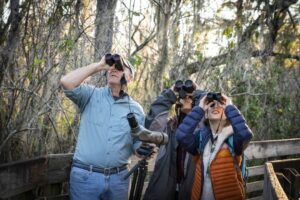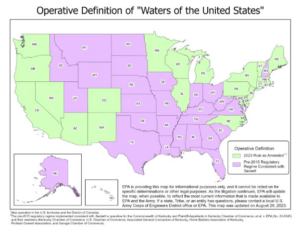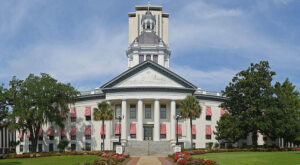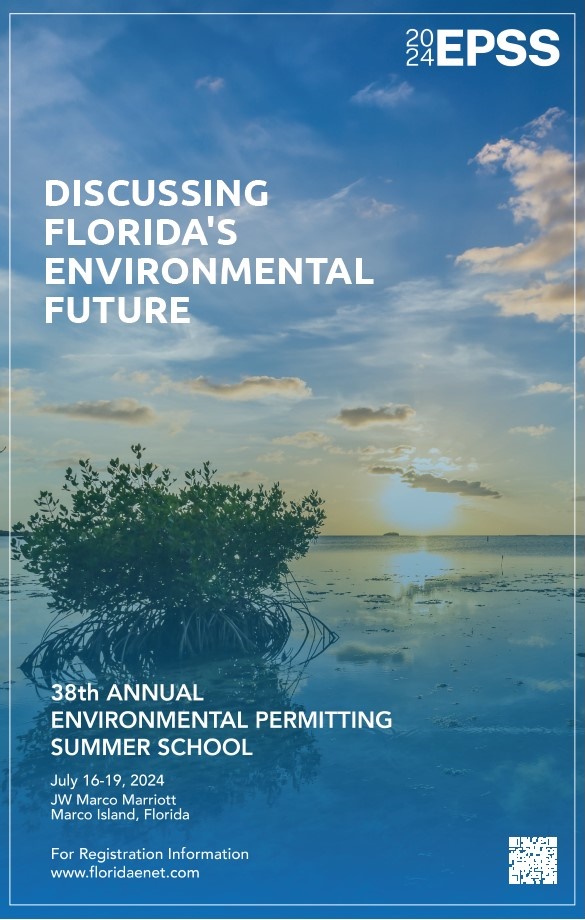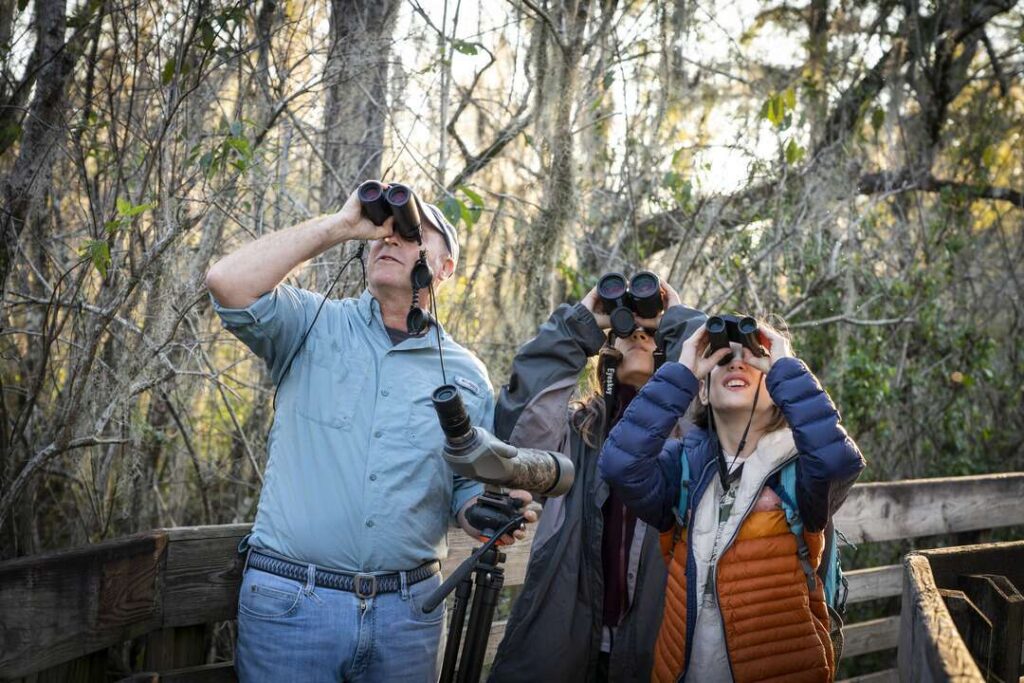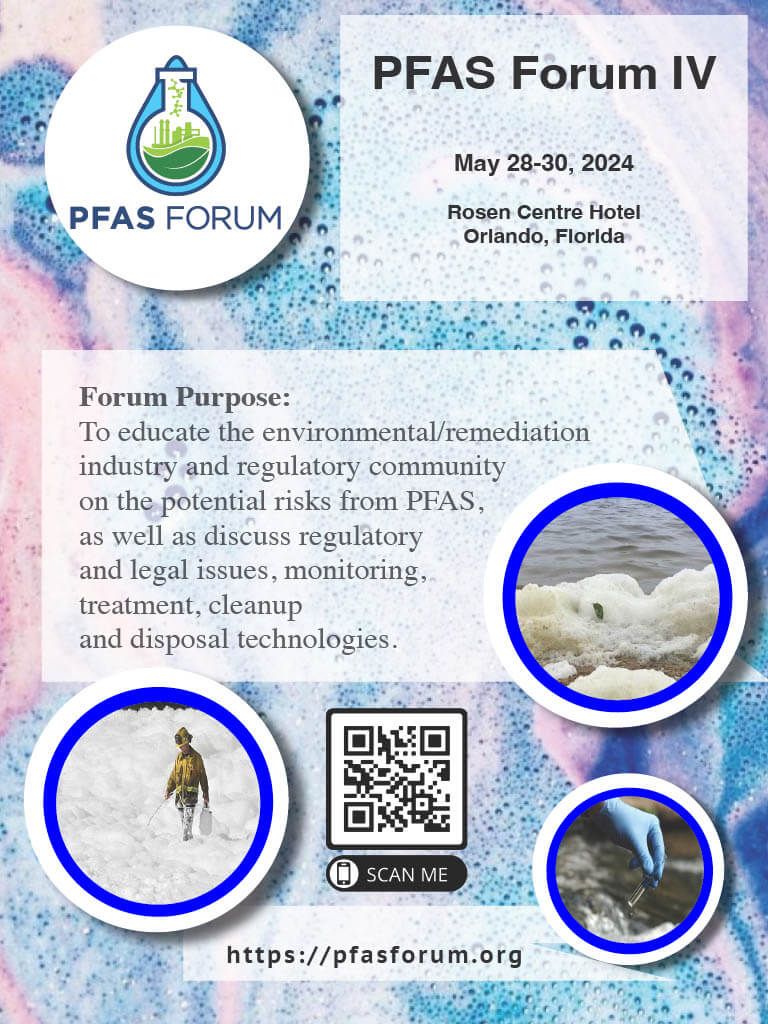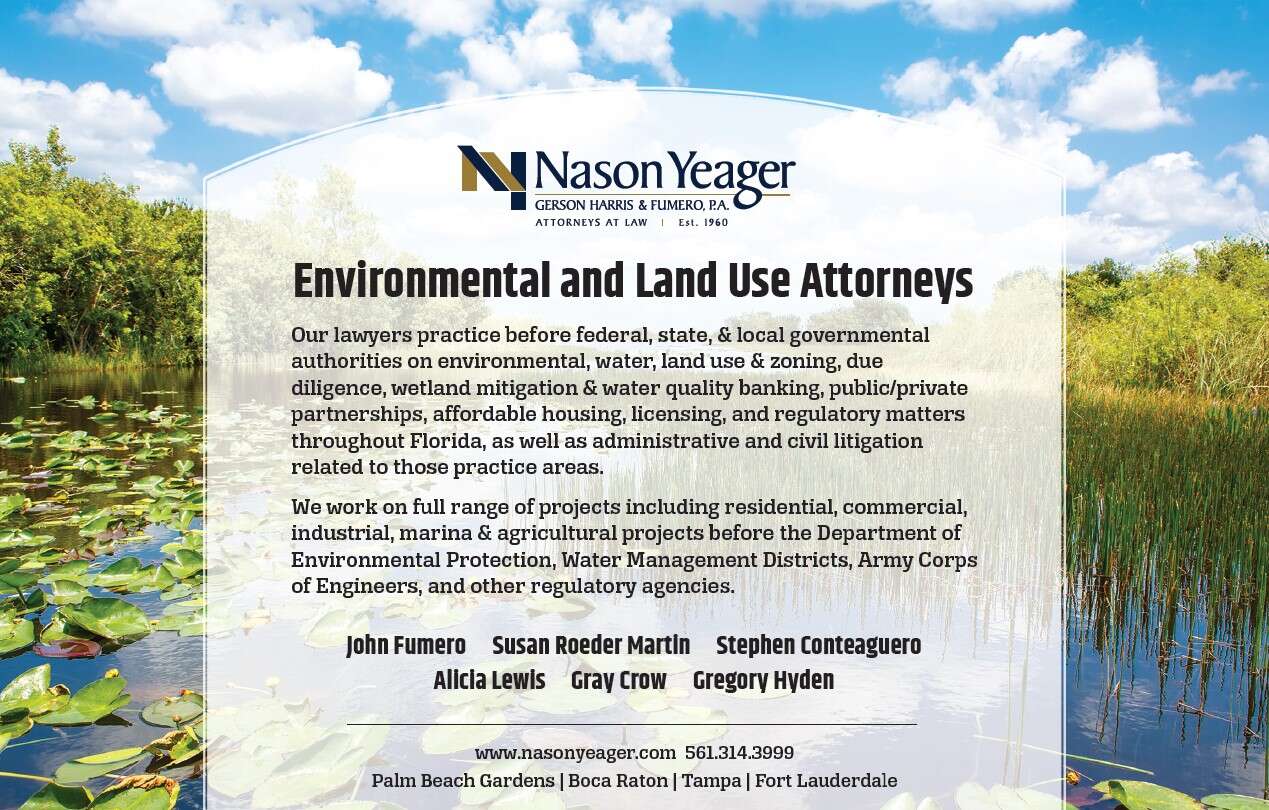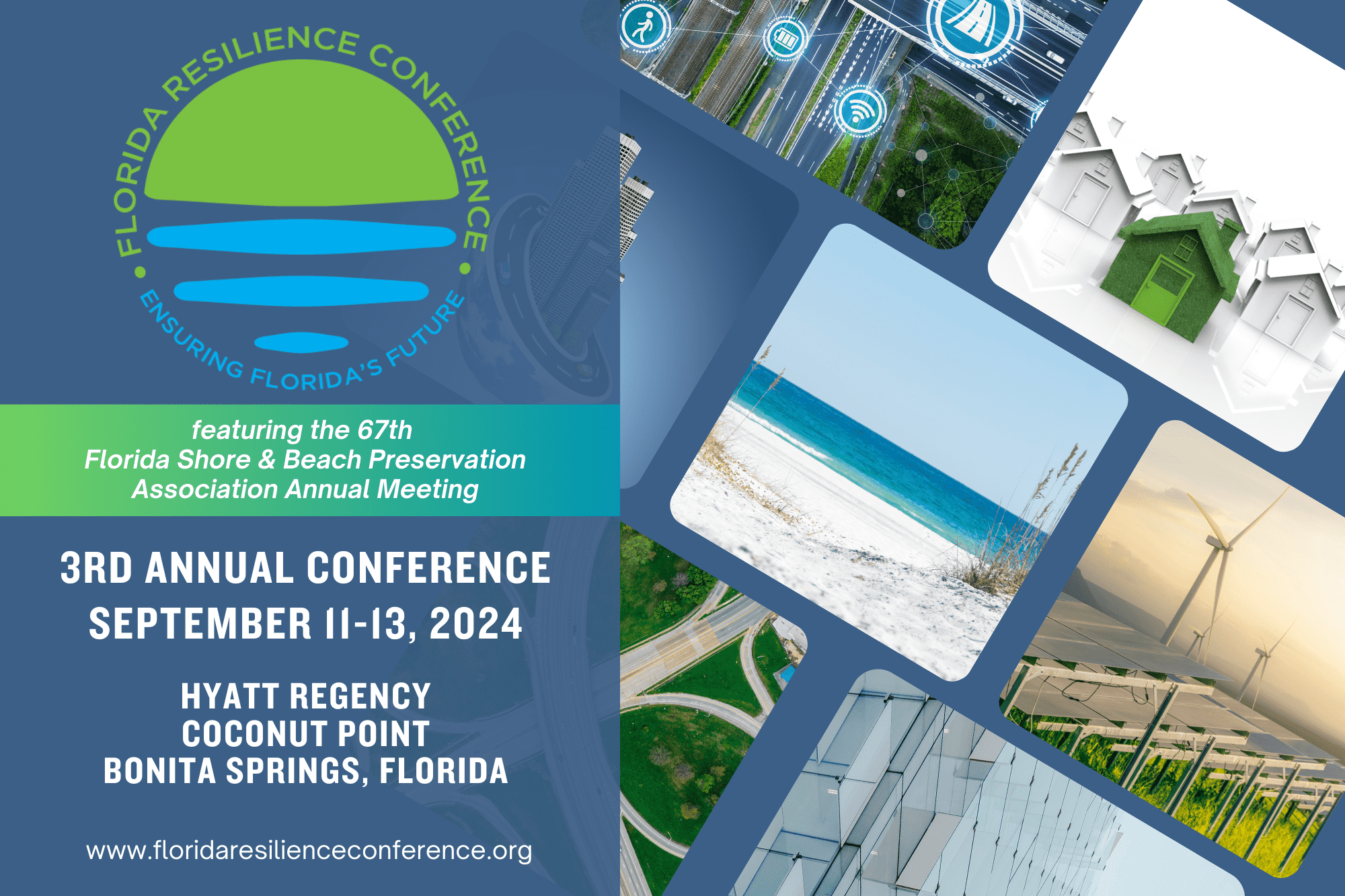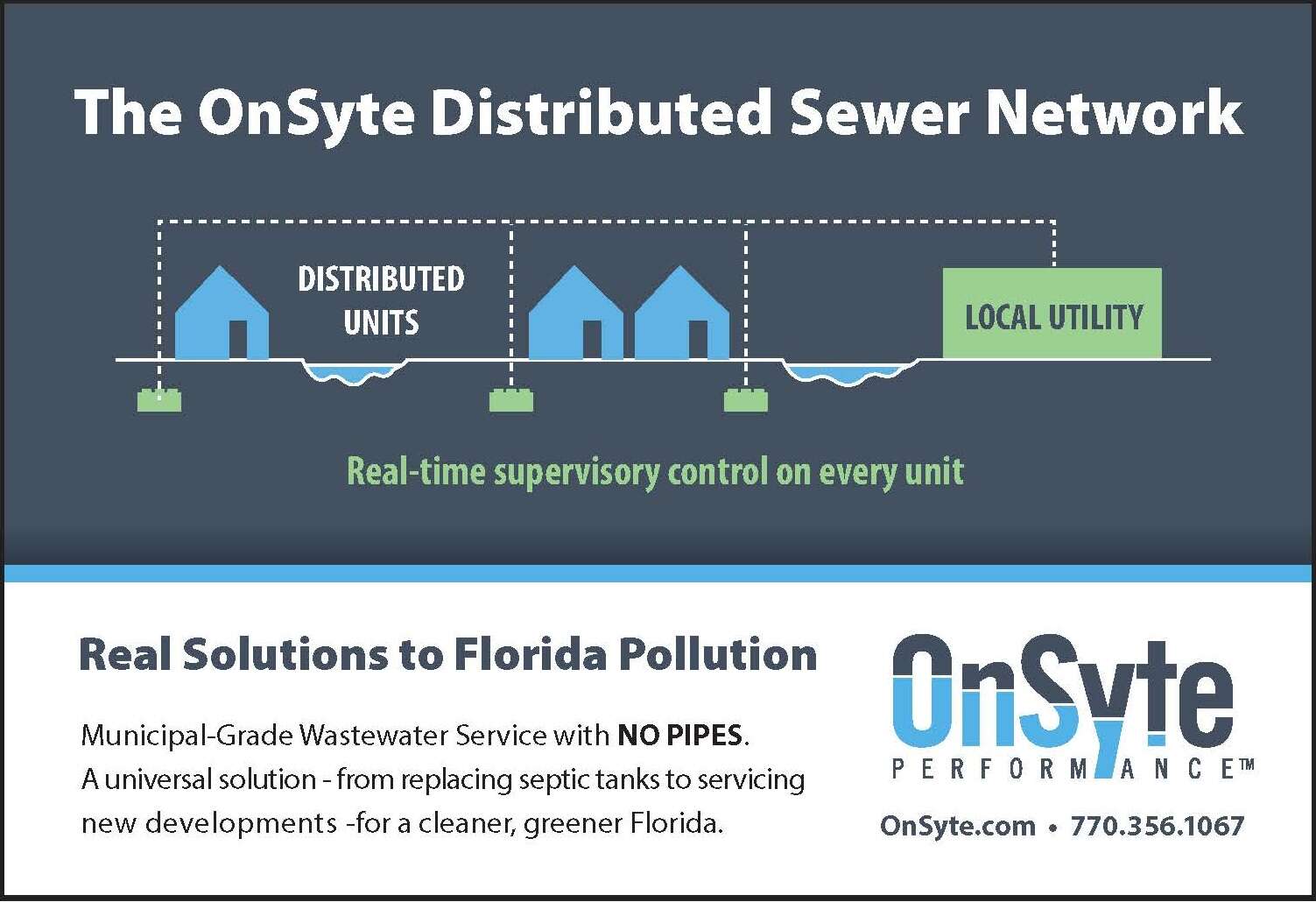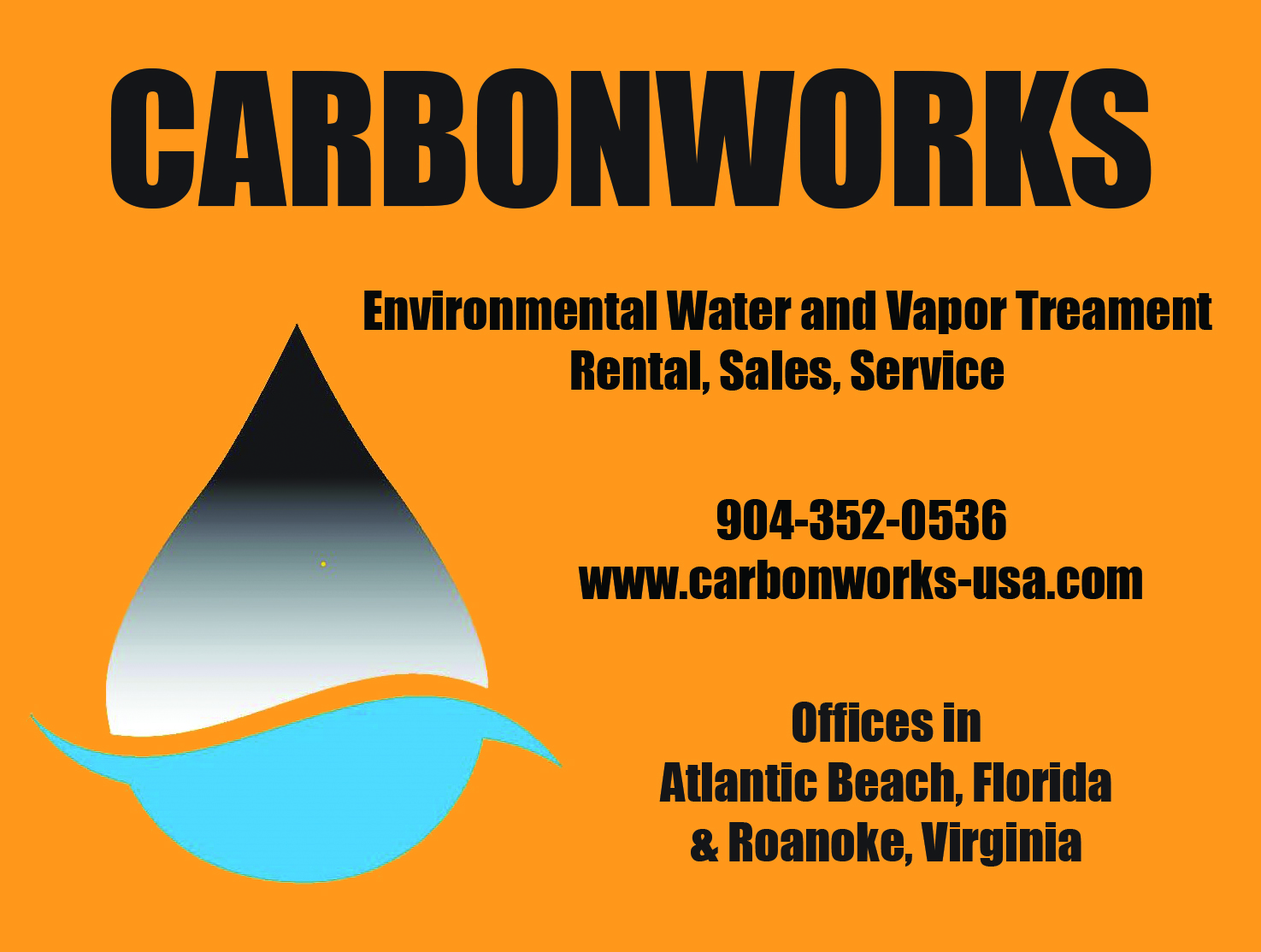STAFF & WIRE REPORTS
DEP Rejects Petroleum Cleanup Program Services Bids
In February, seven months from launching its procurement, the Florida Department of Environmental Protection notified vendors that it was rejecting dozens of awarded vendors, and vowed to rebid the work within 12 months.
The decision came after the initial RFP was amended seven times throughout the procurement timeline, pushing it back from an original expected award date of November to January. The tabulated scores were posted in January, but then revised twice in the days after posting.
The agency stated in procurement documents that it intended to award by region, which was broken up by north, central, and south. It also left open the option of awarding multiple vendors by region, which it did in January. Roughly 30 vendors were chosen per region, with many of them being awarded in multiple regions.
“On Feb. 7, 2024, DEP issued a ‘Withdrawal and Reject All Responses,’” said DEP Communications Director Alexandra Kuchta. “As a result, the existing agency term contracts have been extended for six months while DEP evaluates next steps for a future solicitation.”
Updates on the status of contractor procurement for DEP’s Petroleum Restoration Program are being routinely posted on the Department’s website.
SRWMD reminder: No Wake Zones along Suwannee, Santa Fe rivers
Water levels are higher in the Suwannee and Santa Fe rivers as the result of the large volumes of rainfall in recent months. The Suwannee River Water Management District (District) is reminding boaters of idle speed, no wake zones along the Suwannee and Santa Fe.
Higher water levels can create navigational hazards and slower speeds can provide greater safety for a boat and its occupants. The Florida Fish and Wildlife Conservation Commission (FWC) establishes and enforces the regulated zones when water rises to specific levels. Navigation in Idle speed, no wake zones require a vessel to proceed at the slowest-possible vessel speed to maintain steerage.
There are eight zones – four along the Suwannee River, beginning at the U.S. 90 bridge in Ellaville near Suwannee River State Park and ending near Fowler’s Bluff public boat ramp in Levy County; and four on the Santa Fe River, starting at River Rise in O’Leno State Park and ending at the confluence with the Suwannee River.
Each zone has a different wake stage, and it is recommended boaters consult the No Wake Zone stage for each segment, as well as current river levels at the District website. Boating violations may be reported to FWC dispatch toll free at (888) 404-3922.
Southwest Florida Water Management District Prescribed Burns this Spring
To prohibit uncontrolled fires, the Southwest Florida Water Management District will be conducting prescribed burns April through June on the Lower Hillsborough Wilderness Preserve to reduce the risk of wildfires burning out of control.
Benefits of prescribed fire in controlled settings include reducing overgrown plants, promoting the growth of new, diverse plants, maintaining the character and condition of wildlife habitat, and maintaining access for public recreation.
Approximately 200 acres will be burned in small, manageable units for this exercise in the preserve located south of Cross Creek Boulevard between U.S. Highway 301 and Bruce B. Downs Boulevard near Thonotosassa. The District conducts prescribed fires on approximately 30,000 acres each year.
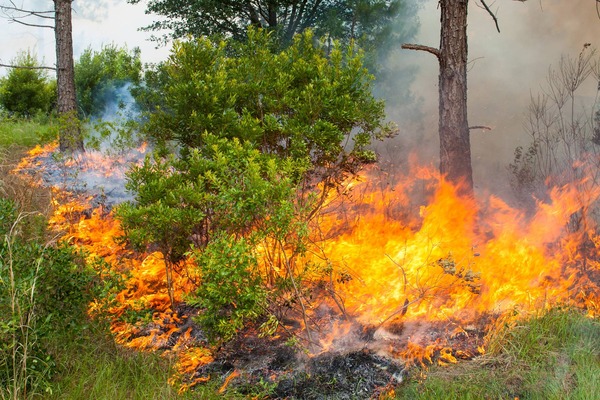
St. Johns River WMD Completes a Series of Prescribed Fire Exercises
The St. Johns River Water Management District recently completed five prescribed burn exercises covering over 5,000 acres of District lands. Prescribed fire helps reduce the possibility of dangerous wildfire while enhancing land’s environmental quality.
Two events covering 169 acres were completed in the Deep Creek Conservation Area in St. Johns County on the east side of the property near Cowpen Branch Road. The property’s trail system was closed for the duration of the burn. A 4,412-acre prescribed burn was completed in the River Lakes Conservation Area in Brevard County and a 250-acre prescribed burn was completed at Crescent Lake Conservation Area in Volusia County. The District also conducted a 196-acre prescribed burn at its J.P. Hall Bayard Point Conservation Area in Clay County.
Prescribed fires are carefully planned and purposefully set under stringent conditions to manage the fire’s effects. The District ensures that wind and other weather conditions are correct for managing the fire and minimizing the impacts of smoke to residents and traffic. Periodic prescribed fires on District lands enhance the land’s environmental quality and protect its neighbors from destructive wildfires.
In fire-dependent ecosystems, fire is nearly as important as rainfall and sunshine according to the District. Prescribed fires restore and maintain natural communities, reduce the chance of destructive wildfires, perpetuate fire-adapted plants and animals, cycle nutrients, manage tree diseases and open scenic vistas.
DEP Provides Piney Point Update
Progress is still being made on the closure of Piney Point, the former Phosphate processing facility in Manatee County and site of a wastewater discharge disaster in 2021. At this point, soft materials from the dredging of Port Manatee Berth 12 are being removed and dewatered to allow the NGS-South compartment to be closed once the dredging and dewatering work is complete.
Pre-treatment of process water contained in the remaining compartment areas is ongoing prior to disposal into Manatee County’s Underground Injection Control (UIC) well. To date, 173,942,404gallons have been transferred for disposal in the UIC well. As a result of the progress in water management, the NGS-North compartment is no longer being actively used for water storage.
DEP is performing stringent regulatory oversight of the site to ensure this is the last chapter in the long history of Piney Point. DEP is committed to working with the court-appointed receiver to ensure that progress toward closure is made as expeditiously as possible. The nest update is scheduled for July.
First Awards Made Through Florida’s Coral Reef Restoration and Recovery Initiative
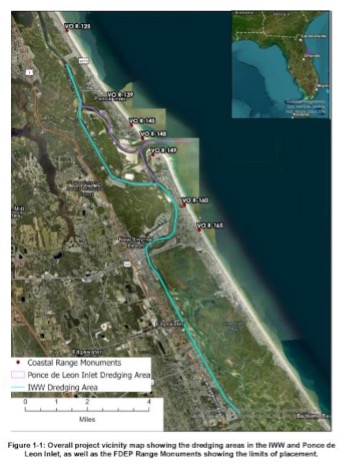
Gov. Ron DeSantis announced that $9.5 million is being awarded to bolster academic and private partnerships to safeguard Florida’s Coral Reef through the Florida Coral Reef Restoration and Recovery Initiative. The reef extends over 350 nautical miles from the Dry Tortugas to the St. Lucie Inlet. This funding will enhance coral recovery and will include propagation and outplanting capacities critical to the health and longevity of the reef.
“As we tackle environmental challenges, we understand that preparation and planning make all the difference,” said Department of Environmental Protection Secretary Shawn Hamilton. Other DEP programs are simultaneously working to address local coral challenges such as water quality restoration, including in Biscayne Bay.
More than $50 million specifically for coral reef recovery and restoration has been dedicated to reef recovery since 2019.
USACE Announces FONSI, Draft SEA for Beach Placement of Maintenance Dredging in Ponce de Leon Inlet for Public Review and Comment
The Finding of No Significant Impact and draft Supplemental Environmental Assessment (SEA) for the stockpile beach placement of sand from maintenance dredging of the Ponce de Leon inlet and Intracoastal Waterway (IWW) in its vicinity in Volusia County, Florida, is available for public review and comment.
The 2024 draft SEA updates information contained in the existing NEPA (National Environmental Policy Act) documents, incorporates prior NEPA information when applicable, and evaluates various alternatives for the placement of dredged material.
The project is along the Atlantic coast of Volusia Co. just north of New Smyrna Beach near Ponce Inlet. The inlet is approximately eleven miles south of Daytona Beach. The proposed preferred alternative consists of stockpiling beach quality sand north of the inlet between Florida Department of Environmental Protection Range Monuments R-139 and R-145.
Sand will be dredged from the Ponce de Leon Inlet Channel and IWW within Volusia County.
EPA Region 4 Announces $361 Million in Funding for Florida Drinking Water, Wastewater, and Stormwater Infrastructure Upgrades as Part of the Investing in America Agenda
The U.S. Environmental Protection Agency (EPA) announced more than $361 million from the Federal Administration’s Investing in America agenda for Florida drinking water and clean water infrastructure upgrades. The funding is part of the $50 billion investment in water infrastructure upgrades from the Bipartisan Infrastructure Law.
Roughly half of the funding will be available as grants or principal forgiveness loans, ensuring funds reach the underserved communities most in need of investments in water infrastructure.
“With $50 billion in total, the largest investment in water infrastructure in our nation’s history, the EPA will enable communities across the nation to ensure safer drinking water for their residents and rebuild vital clean water infrastructure to protect public health for decades to come, said EPA Administrator Michael S. Regan.,
The Bipartisan Infrastructure Law includes funding for communities across the country that are facing water infrastructure challenges. In many municipalities, aging water infrastructure, including old, broken or lead pipes carrying drinking water and wastewater treatment plants, are in need of major upgrades. Likewise, many communities struggle to maintain adequate stormwater infrastructure to effectively manage flood impacts from climate change and others need to upgrade their water treatment to address emerging contaminants like PFAS. Since 2022, the Bipartisan Infrastructure Law has delivered over $537 million into water infrastructure projects across Florida.
The Sierra Club Florida Gives the Florida Legislature a D+
The Sierra Club Florida released its 2024 Florida Legislative Scorecard, which is designed to provide a snapshot of Sierra Club Florida’s priority bills this past session, and the legislators who either championed or worked against Florida’s environment, democracy, and freedom. The Florida State Legislature received a D+ this year from the Sierra Club.
The Sierra Club noted that, “The Legislature’s attacks and backroom deals were on full display during Florida’s 2024 legislative session. From limiting the freedoms and financial stability of taxpayers, to promoting dirty fuels, to prohibiting local governments from protecting their own communities, the consequences of this session will be felt for years to come.”
Their highlights for 2024 include:
- HB 1645, “Energy Resources,” prevents local governments from making decisions about where methane gas facilities are allowed in their communities, cuts the few programs the state has to address climate change, and increase costs to taxpayers and energy customers by encouraging local utilities and governments to prioritize dirty fuels over clean, renewable energy.
- HB 87, “Taking of Bears”, a bill makes it easier for people to kill Florida’s black bears built upon the bold-faced lie that Florida faces an epidemic of ‘crack bears’ who are ingesting illicit drugs and destroying people’s homes.
- HB 433, “Employment Regulations,” Prevents local governments from protecting their economies and workers from the impacts of extreme heat.
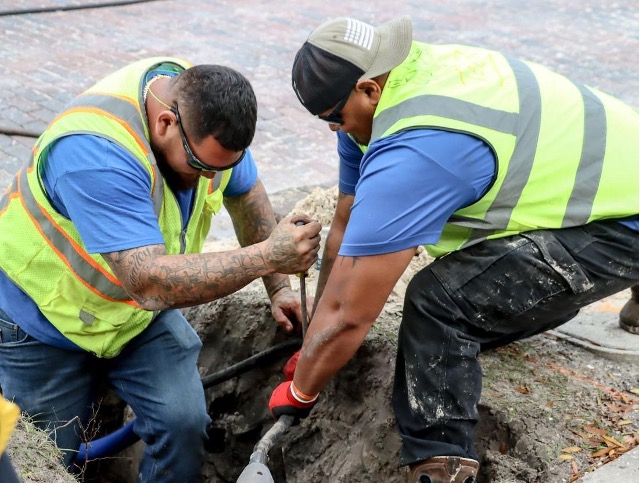
Tampa Water Department’s New Engineering Construction Crew Saves Money as Infrastructure Costs Rise
Tampa Water Department has created a construction team to enact a proactive approach to combat soaring construction costs. The new Engineering Construction Crew is helping the city save money and move projects along faster.
Labor and material costs have increased drastically, as much as 40 percent in some cases, resulting in challenges to fund projects. The new Engineering Construction Crew is helping the Tampa Water Department complete infrastructure work in-house. In-house work allows the department to have more oversight on the construction process, and the crew can complete work at a fraction of what it would cost to hire a third-party contractor.
The highly skilled nine-person team is responsible for completing a variety of projects, from installing water meters to extending water mains. Team members have a combined 90 years of experience in their field, as well as direct experience working on city infrastructure projects.
The Engineering Construction Crew has saved more than $400,000 in construction costs since the crew began working in late 2023.
Tallahassee Awarded Urban and Community Forestry Grant
The City of Tallahassee recently secured a $25,000 Urban and Community Forestry matching grant from the Florida Forest Service to help ensure the urban forest is healthy and properly managed for future generations.
At 55 percent, Tallahassee has one of the highest percentages of tree canopy coverage in the nation. The City also supports an extremely diverse population of tree species. To help manage this vital asset, the City adopted its Urban Forest Master Plan in 2018 and employs more than twenty certified arborists and tree care professionals who provide care for trees within public rights-of-way, participate in reforestation efforts and help educate residents about proper tree care.
The City plants hundreds of trees on residential property each year – free of charge – through its Adopt a Tree program. Tallahassee has been recognized by the Arbor Day Foundation as a “Tree City USA” community for thirty-one consecutive years.
The grant will help fund tree inventory along canopy roads within city limits and add trees along publicly maintained streets in several adjoining neighborhoods.


